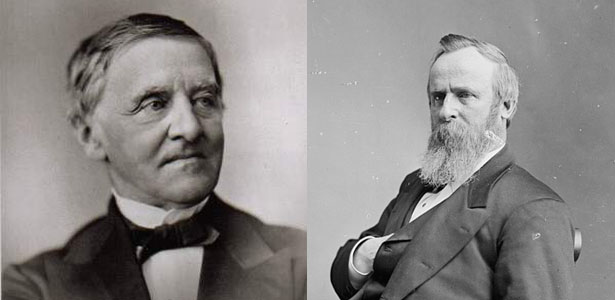They all knew.
Mike Crapo and Jim Risch, Mike Simpson and Russ Fulcher. They all knew.
They knew the Republican candidate for president in 2016 was a fraud, a con man, a grifter, a bully, unfit, a liar, incompetent, even dangerous. They knew it and said it at the time. Crapo said he couldn’t support the guy after the Access Hollywood tape became public. Now, he quietly and meekly stands by while the attacks continue on John McCain and Muslims, women and minorities. The politician who once celebrated the character of a Reagan or a Bush grovels before a gold-plated fabulist who refuses to condemn white supremacists.

Risch supported Marco Rubio and then Ted Cruz and then finally the guy who paid $750 in federal income taxes in both of his first two years in the White House. Actually, to be precise, Risch really didn’t support him, but because the senator is a profoundly partisan hack first and an American second, he’s embraced the con man.
A year ago, Simpson said the whole Trump universe was a “distraction” that he refused to pay attention to, at least he did until he needed an endorsement for this re-election and then he went all in with the Grifter-in-Chief. The once principled congressman from Idaho’s second district is now all quiet. He’s all in on tax avoidance and almost surely tax fraud. Rampant foreign interference in American democracy, trying to cripple the post office and lying about mail ballots, but, well, character and honesty are vastly overrated.
Fulcher, a guy who’s never had an original thought in his political life, is a special case. He’s not just a partisan hack, but worse. The rookie congressman, with precisely zero to show for two years in Congress, is a museum exhibit for why Idaho’s first district has elected so many overstuffed sofas to Congress in the last 60 years. You need to steal from the late Molly Ivins to describe Fulcher-level vacuousness: “If his I.Q. slips any lower, we’ll have to water him twice a day.”
Ted Cruz knew. And Lindsey Graham. And Rand Paul. And, yes, Mitt Romney knew. They all knew. They called him a “bigot,” “utterly immoral,” the “Kim Kardashian of politics,” a “narcissist at a level that I don’t think this country has ever seen.”
Governor Brad Little knew. Yet, he stood by while the president’s conspiracy theories and rank incompetence undermined his own faltering response to a deadly pandemic. While Idaho children contracted the virus and the White House pressured the Centers for Disease Control to soft pedal the risks of reopening schools, the governor was tweeting his praise for a Supreme Court nominee. Little is a smart guy, a decent guy, a Vandal. He knew it was all a disaster.
They knew, especially Risch who had the access to the intelligence briefings and the best White House pass, that his response to the pandemic was going to unnecessarily kill thousands of Americans. They knew that not invoking the Defense Production Act to speed protective gear and testing kits to hospitals and schools was a disaster. They knew and they said nothing. It’s worse than merely being stupid, when you know, its malicious and deadly.
They knew 200,000 dead Americans and 460 dead Idahoans was an historic fail, a tragedy. They knew.

They all knew when his first secretary of state called him a “moron,” when his second National Security Advisor called him “an idiot” and when his first defense secretary said he had the understanding of “a fifth- or sixth-grader” that he was taking the country to a dark and dangerous place. They saw it. They knew.
Now comes the cold reality that we all knew. He’s never been a successful businessman. He inherited $400 million and is now $400 million in debt. His casinos failed, his university failed, his airline and steaks and vodka failed. The failure of his presidency, we all knew, would follow. And it has.
Much has been made of the report that he paid only $750 dollars in taxes during each of his first two years in the White House, while the average American household pays that much every month. While that does explain his panicked efforts to prevent his voters from knowing the extent of the scam, that isn’t the real story. The real story is that he’s a fraud, a fraud who almost certainly has committed fraud.
They know, even as they act like it’s no big deal, that his huge personal debt and his desperation are a true national security threat. There are no coincidences in politics, so it is little wonder that he praises Putin, flatters Erdogan and cozies up to every flim-flam despot in the world. They know he needs these thugs – their money, their encouragement, their playbook.
They knew that surrounding the presidency with enabling sycophants and grifting family members was a huge mistake, but they liked the judges and the tax cuts that flowed to their own bottom lines. And besides they knew that they had lost “the base” to the basest, most self-centered, incapable and destructive charlatan since Mussolini strutted in Rome. They knew.
They know they once believed in character and integrity and “the rule of law.” They were the party of the Gipper and Ike; they still invoke Lincoln as if the icon of their party would recognize the current bumbling brutality. They know it was all a lie. And they know they enabled and then embraced the chaos and the crazy.
They also know that in politics there is always, always a reckoning. You can fool some of the people always, but the rest eventually catch on. The reckoning is coming. They know.
They hope, as they stare into the dysfunction, decay and disease of the country under their watch, that it was all an aberration, a spasm of crassness and craziness when America went temporarily off the rails before self-correcting. They hope, because they don’t really know.
They hope the memories are short and the forgiveness is plentiful because they knew it was all going to be a disaster from the first day. They hope they can hang on to their seats, and this being Idaho, they probably will, but they must know they own all the mistakes, the carelessness, the lying, the death and damage to democracy. They know and they know it will haunt them all their days.
—–0—–
Additional Reading:
Some articles from the last few days that I found of interest. You may, too.
I Lived Through Collapse. America Is Already There.
Indi Samarajiva is a writer who lives in Colombo, Sri Lanka and experienced first-hand the collapse of his country’s civil society.
This is the most chilling thing I’ve read in a while.
“Perhaps you’re waiting for some moment when the adrenaline kicks in and you’re fighting the virus or fascism all the time, but it’s not like that. Life is not a movie, and if it were, you’re certainly not the star. You’re just an extra. If something good or bad happens to you it’ll be random and no one will care. If you’re unlucky you’re a statistic. If you’re lucky, no one notices you at all.
“Collapse is just a series of ordinary days in between extraordinary bullshit, most of it happening to someone else. That’s all it is.”
The COVID-19 Pandemic Is Changing Our Dreams
But you knew that, right? I don’t always remember the dreams, but the ones that do follow me into the day have been doozies.
Tore Nielsen is a professor of psychiatry at the Université de Montréal and director of the Dream and Nightmare Laboratory there. She writes in Scientific American:
“Although widespread changes in dreaming had been reported in the U.S. following extraordinary events such as the 9/11 attacks in 2001 and the 1989 San Francisco earthquake, a surge of this magnitude had never been documented. This upwelling of dreams is the first to occur globally and the first to happen in the era of social media, which makes dreams readily accessible for immediate study. As a dream ‘event,’ the pandemic is unprecedented.”
You’re not dreaming unless you’re dreaming weird stuff. The full article.
The Ugliest, Most Contentious Presidential Election Ever
Before Bush v. Gore there was Hayes v. Tilden in 1876.

“Florida, Louisiana and South Carolina were deemed too close to call, and with those states still in question, Tilden remained one electoral vote short of the 185 required by the Constitution to win election. With 165 electoral votes tallied for Hayes, all he needed to do was capture the combined 20 electoral votes from those three contested states, and he’d win the presidency. The ensuing crisis took months to unfold, beginning with threats of another civil war and ending with an informal, behind-the-scenes deal—the Compromise of 1877—that gave Hayes the presidency in exchange for the removal of federal troops from the South, effectively ending Reconstruction.”
Gilbert King in Smithsonian magazine has the history of the most contentious presidential election – until now, perhaps.
